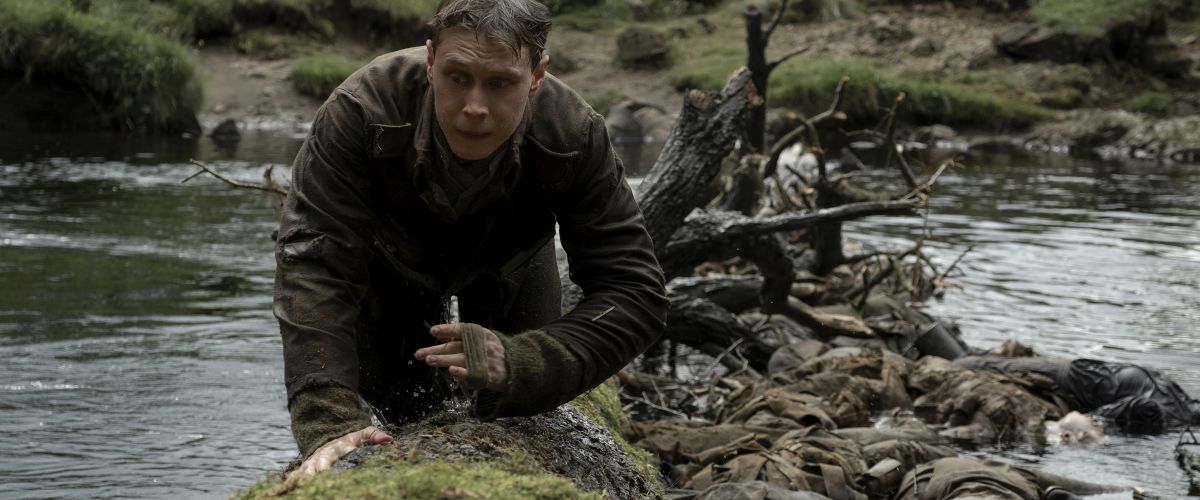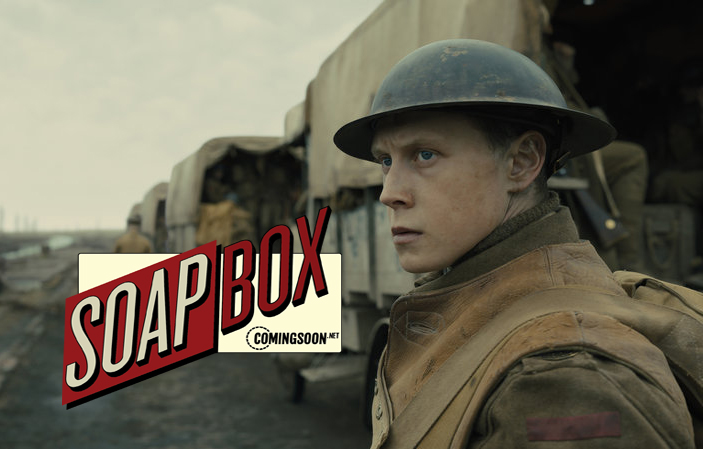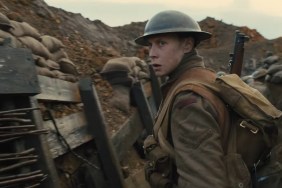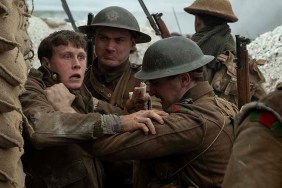When Sam Mendes was a child his grandfather told him a story about a signaler in the First World War. In 1917, hundreds of British soldiers attempted to retake a village in Belgium from the Germans. They lost a third of their men—those who weren’t killed or wounded were MIA. The missing men were stuck in the middle of “No Man’s Land,” unable to communicate with those in the safe zone. That aforementioned signaler offered to run out and locate the surviving men so that they could be rescued. That runner was Alfred Mendes, director Sam Mendes’ grandfather- the inspiration for 1917.
Mendes’ Golden Globe-winning film and Best Picture frontrunner at the Oscars, 1917, is a personal one. The fictional story of two British soldiers, Lance Corporals Blake (Dean-Charles Chapman) and Schofield (George MacKay), is one rooted in harsh the realities of war. Those two men must cross enemy lines to deliver a letter to Colonel MacKenzie of the second, who is chasing after the retreating German forces. Unbeknownst to him, the Germans are not retreating; they are luring the British into a trap that could massacre 1600 men. Blake’s brother is in the Brigade about to be ambushed, the only dog Schofield has in this fight is one barking at a disillusioned sense of duty.
In a way, their mission is also ours. 1917 is filmed as one continuous shot; the camera never cuts away or diverts your attention. It is relentless. Every scene of the movie is woven together, resulting in an engrossing experience. Its third-person-esque perspective is amplified by an intention-gauging score and startling set-pieces. If you let it, 1917 will leave you mesmerized by the era and soldiers it depicts—a love letter to those who, covered in mortar, laid the bricks of the contemporary world.
A good war film pays homage to the combatants who came before us while embracing the altruistic and futile nature of war. We see this is the plethora of WWII films that are out there. Steven Spielberg’s Saving Private Ryan (the granddaddy of war epics) is a brutal and romantic contemplation of honor, courage, and decency under fire. Similarly to 1917, Christopher Nolan’s WWII epic, Dunkirk uses fictional characters to retell the factual (and miraculous) evacuation of Dunkirk—a salute to the tenacity of not only the French and British forces that assisted in the evacuation but the civilian vessels that shuttled over 300,000 men home. Letter From Iwo Jima, The Thin Red Line, The Bridge on the River Kwai, all fantastic WWII films that shed a light on the war-torn landscapes of old.
Obviously, 1917, is not a WWII film. A lot more WWII films have been made in recent years than WWI films. It seems like the bulk of WWI films made before Mendes’ 1917 came out were released during the mid to late 20th century. Movies like Lewis Milestone’s All Quiet on the Western Front (1930), Stanley Kubrick’s Paths of Glory (1957), David Lean’s Lawrence of Arabia (1962), and Peter Weir’s Gallipoli (1981) are not only great WWI films but great films period. With the exception of Spielberg’s War Horse (2011) and Jeremy Sims’ Beneath Hill 60 (2010), there really hasn’t been any truly great contemporary WWI movies in quite some time.
The great films that do exist about WWI don’t seem to focus as much on the intimacy of trench warfare as 1917. Lawrence of Arabia, for example, takes place during WWI but follows Peter O’ Toole’s lieutenant Lawrence in Cairo. The most notable, and arguably the best WWI films of the 20th century (that depict combat) are All Quiet on the Western Front (both original and 1979 remake) and Paths of Glory. The former follows a young German soldier who becomes disillusioned by what he sees on the battlefield and the latter is about a group of soldiers, in the trenches, who refuse to attack the enemy. Kubrick’s Paths of Glory is on par with his better-known Vietnam War film, Full Metal Jacket, arguably even better, All Quiet on the Western Front is damn near perfect on all fronts—from writing and acting to directing.
RELATED: 1917 Blows Away Star Wars at the Box Office!
It would be unfair to compare 1917 those films because technology has changed. Mendes’ decision to direct in 1917’s style seems essential in retrospect: there are no time outs or breaks in war. Whether 1917 is the best WWI movie ever is perhaps beside the point; it is the best at what it does. Never has there been a more intimate, technically impressive or moving depiction of trench warfare-less of a character study and more of a vehicle for the audience.
This is not to say that 1917 doesn’t have a good story or character(s). The movie is chock-full of fantastic cameos. However, the camera stays with Blake and Schofield, never giving the audience time to invest in other characters. The fact that we are so fixated on the main protagonists is why the movie feels so personal; when two protagonists decrease to one, we’re all in. (SPOILER ALERT) Blake is stabbed by a German soldier (who he was trying to help) when 1917 becomes Schofield’s show—perception of duty aside, his buddy just died, the mission is now his purpose. As Blake bleeds out, Schofield recounts the description Blake gave him of his older brother, “just like you, a little older…”
Lines like the one typed prior that trail off into the film’s environment, developing its character and story. 1917’s script is jam-packed with these kinds of badass lines. From, “It does do to dwell on it” and “Some men just like the fight” to “There’s only one way this ends: the last man standing.” They outline the circumstances we and Schofield navigate over a nearly two-hour runtime.
When Schofield cries three-fourths through the film you realize you haven’t had a moment to catch your breath and neither has he. This intentional realization makes the subsequent moment when Schofield finds the second battalion (unknowingly) all the more powerful. All the men are gathered around listening to a man sing “The Wayfaring Stranger.” The peace and tranquil song affect Schofield and the audience. It’s one of the film’s trippiest moments, soaking you in a fleeting calm before its climatic ramp up.
RELATED: Sam Mendes Gives Inside Look at 1917 ‘Passion Project’ in New Featurette
After realizing the first wave is already being sent out he starts shoving his way through the trench. He must deliver his message and stop the attack. The cinematography in these shots (or rather, the same shot you’ve been watching all along) is breathtaking; the running sequence on the battlefield would give a 103-year-old man goosebumps. After finally delivering his message, Schofield gets an almost simultaneous, “Well done lad” and “F*ck off.”
There is no triumph in Schofield’s success, life just goes on. The film ends with him taking a moment. He doesn’t want an award (having exchanged his prior medal for wine) he just wants to go home. We see him sit in a field similar to the one we see at the beginning of the film. It’s a classic bookend. Sitting beneath a nearby tree, he looks at photos of his wife and two young daughters, one of the photos has a message on the back—come back to us. This is when the screen fades to black and reads: for Lance Corporal Alfred H. Mendes, 1st Battalion, King’s Royal Rifle Corps., who told us the stories.
That annoyingly long summary exists to prove one point: If the story looks that good in print, it’s clearly spectacular on screen. The fact that the movie feels so personal isn’t just because of the way it is shot, it’s because of the way it is written—the movie’s technical aspects serve the story and the traditionally-told story serves the memory of Mendes’ grandfather. Mendes’ grandfather was awarded a medal for bravery during WWI which you read about in the Autobiography of Alfred H. Mendes 1897-1991.
RELATED: 1917 Final Trailer Starring George MacKay & Dean-Charles Chapman
The actor who plays Schofield, McKay had a great grandfather who was also a signaler like Alfred Mendes. Both actor and director appeared to have worked on this movie with a transcendent amount of love and respect for those who came before. Operating under the understanding that we can’t possibly fathom what it was like to fight in a World War-drinking our $5 caramel macchiatos- but a good story can serve as a belated salute. A story inspired by someone who did understand. 1917 is the greatest WW1 of the 21st century because it’s as close as a movie can get to “thank you.”
1917 Official Photos
-
1917_tsr1sheet_rgb1

-
1917
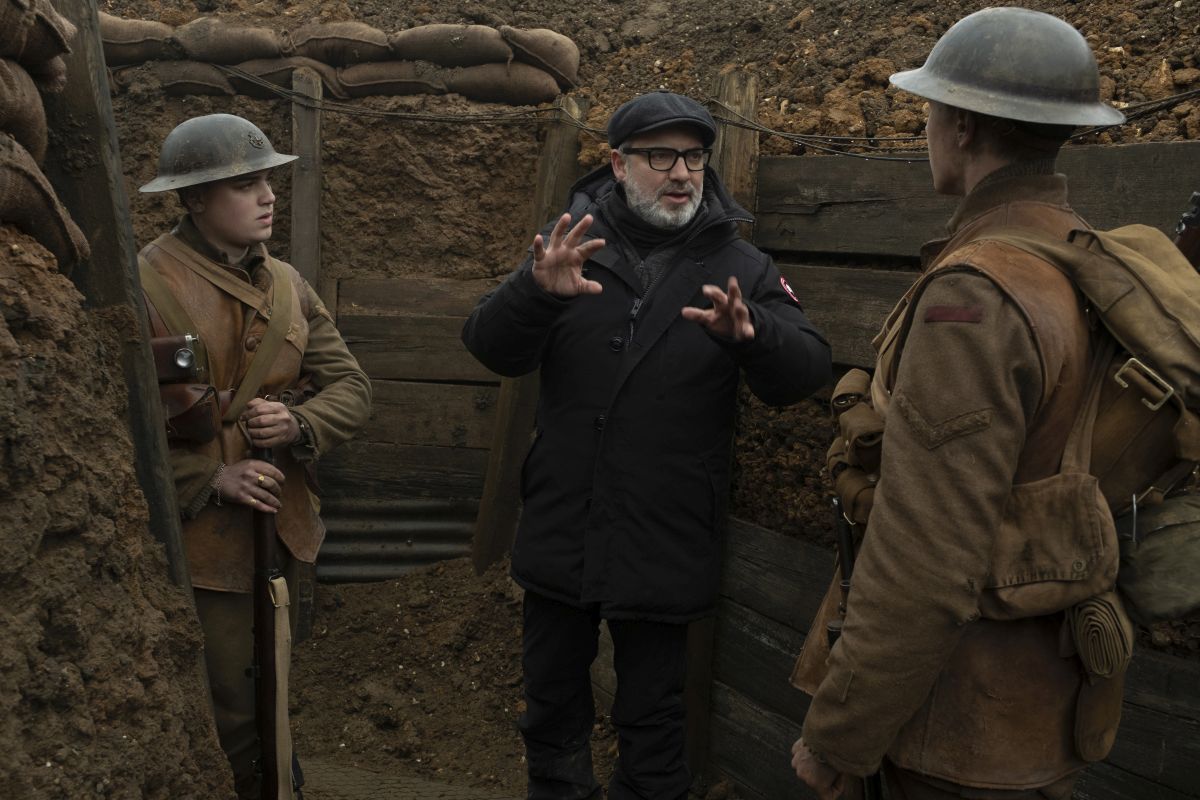
-
1917 (2019)

(from left) Blake (Dean-Charles Chapman) and Schofield (George MacKay) in 1917, the new epic from Oscar®-winning filmmaker Sam Mendes. -
1917 (2019)

(from left) Dean-Charles Chapman, George MacKay and Oscar®-winning filmmaker Sam Mendes on the set of the new epic, 1917. -
1917
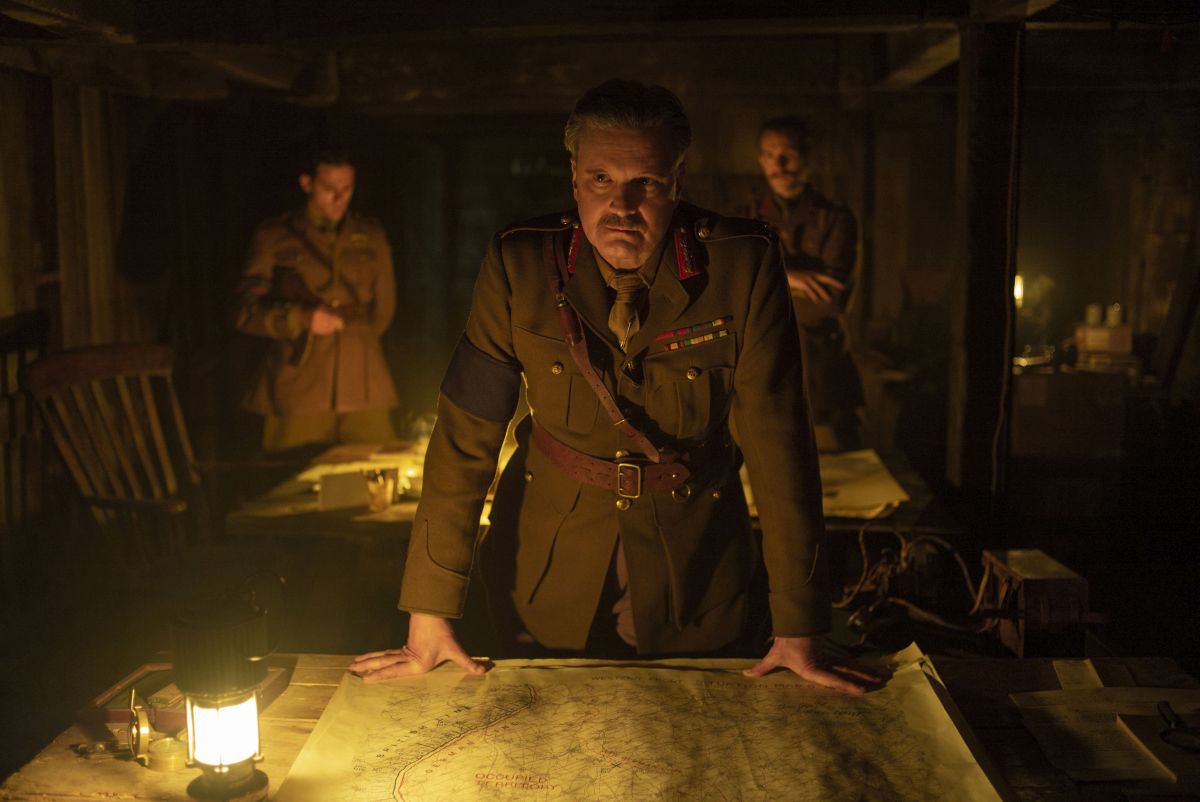
Colin Firth as General Erinmore in 1917, the new epic from Oscar®-winning filmmaker Sam Mendes. -
1917 (2019)
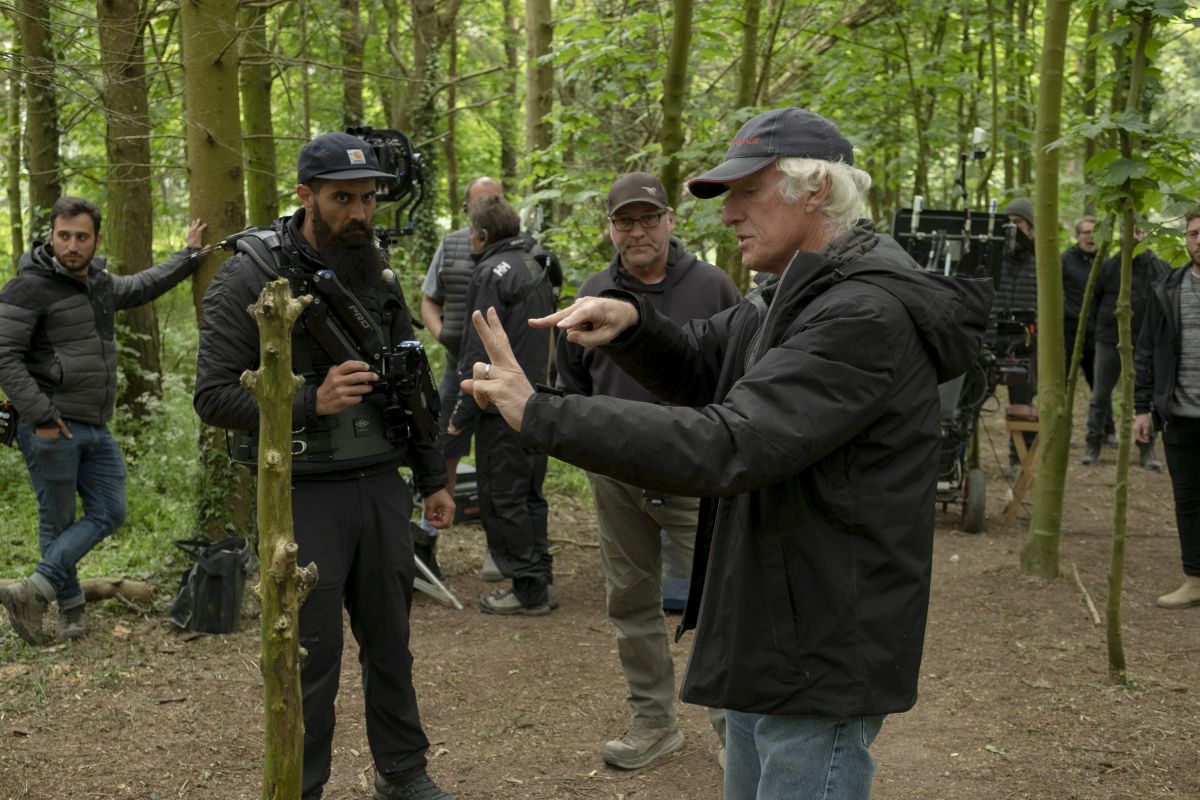
(foreground) Cinematographer Roger Deakins on the set of 1917, the new epic from Oscar®-winning filmmaker Sam Mendes. -
1917 (2019)
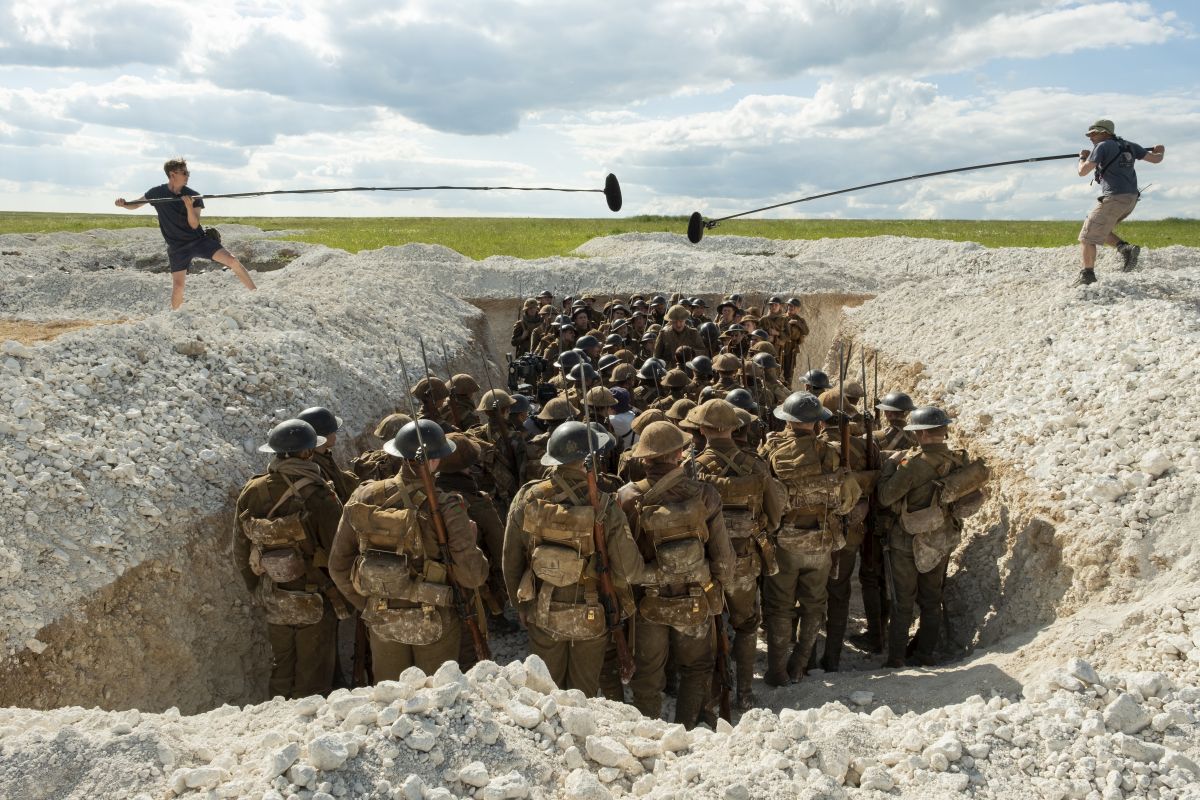
Cast and crew members on the set of 1917, the new epic from Oscar®-winning filmmaker Sam Mendes. -
1917 (2019)
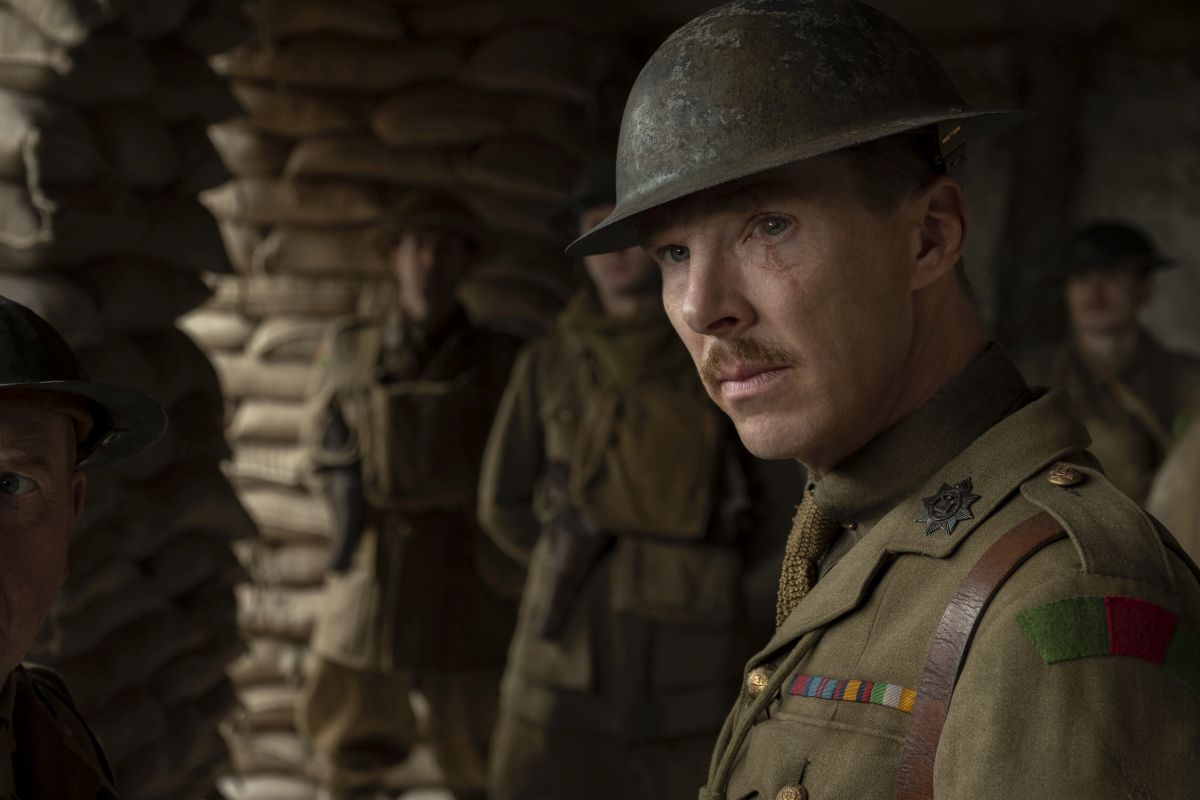
Benedict Cumberbatch as Colonel Mackenzie in 1917, the new epic from Oscar®-winning filmmaker Sam Mendes. -
1917 (2019)
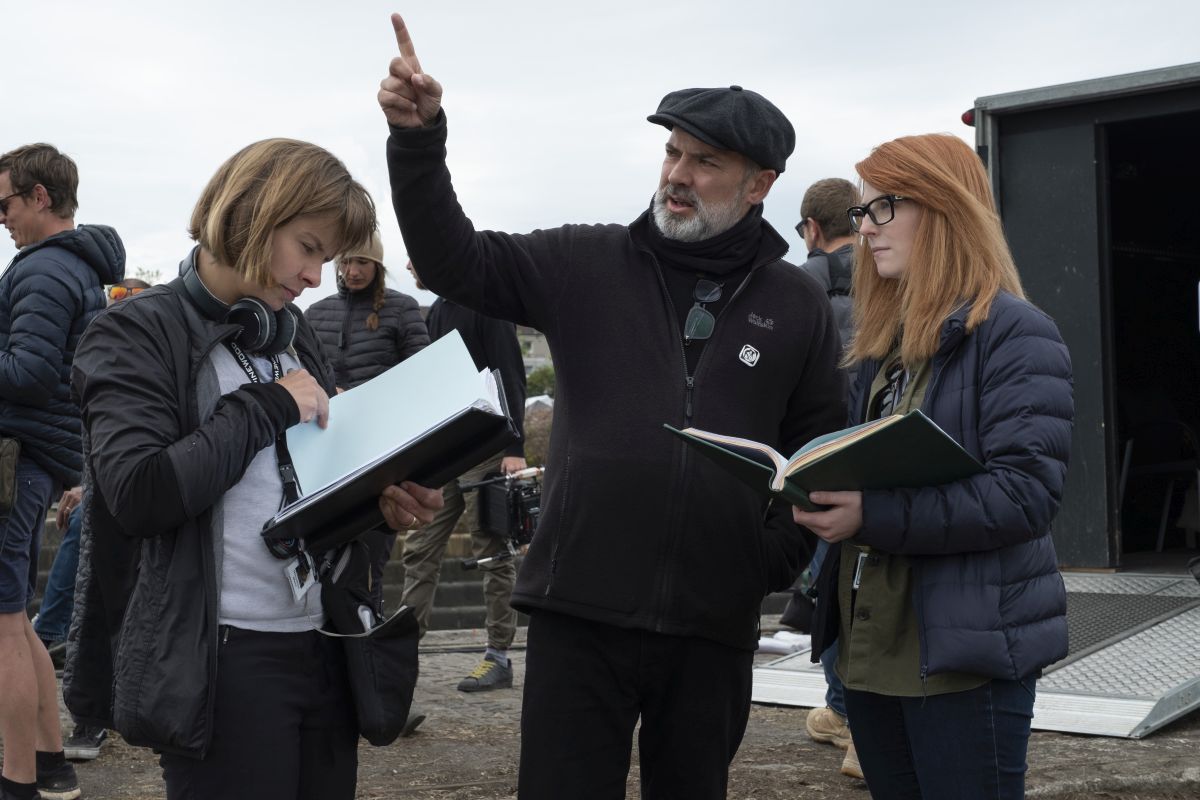
Script supervisor Nicoletta Mani (left) and co-screenwriter Krysty Wilson-Cairns (right) with Oscar®-winning filmmaker Sam Mendes on the set of Mendes’ new epic, 1917. -
1917 (2019)
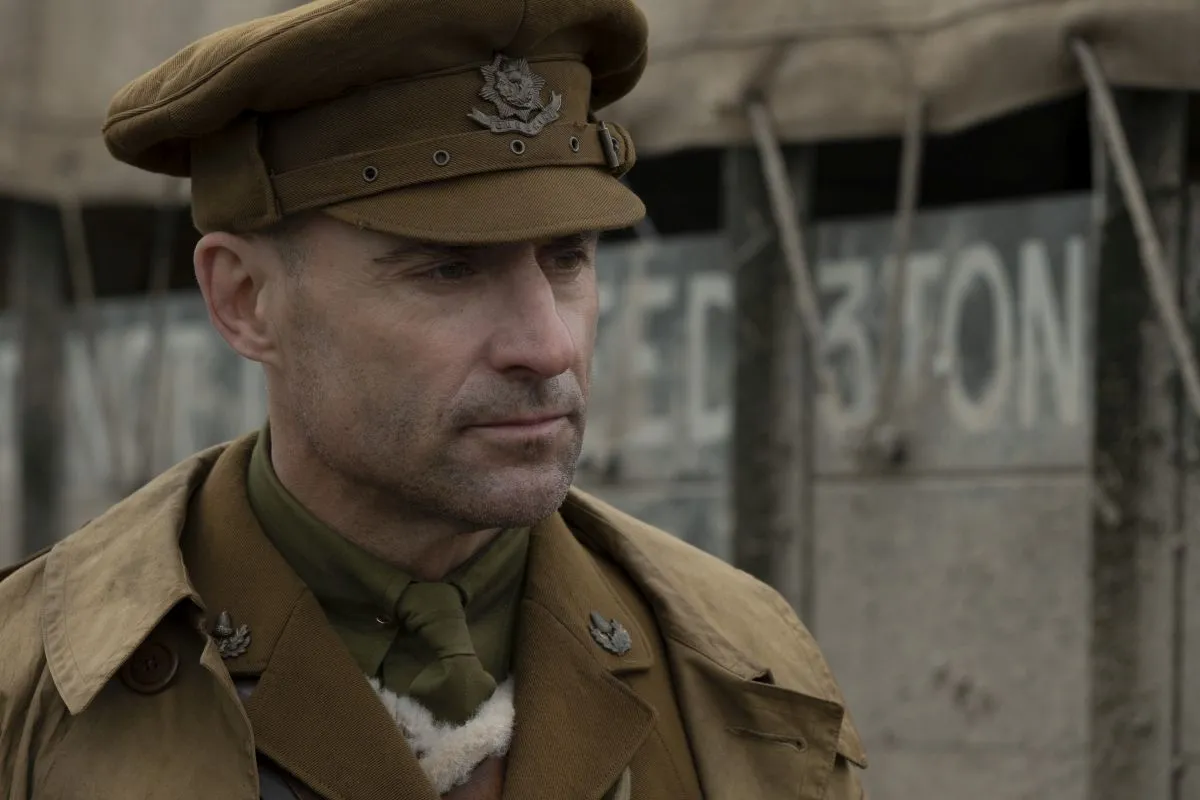
Mark Strong as Captain Smith in 1917, the new epic from Oscar®-winning filmmaker Sam Mendes. -
1917
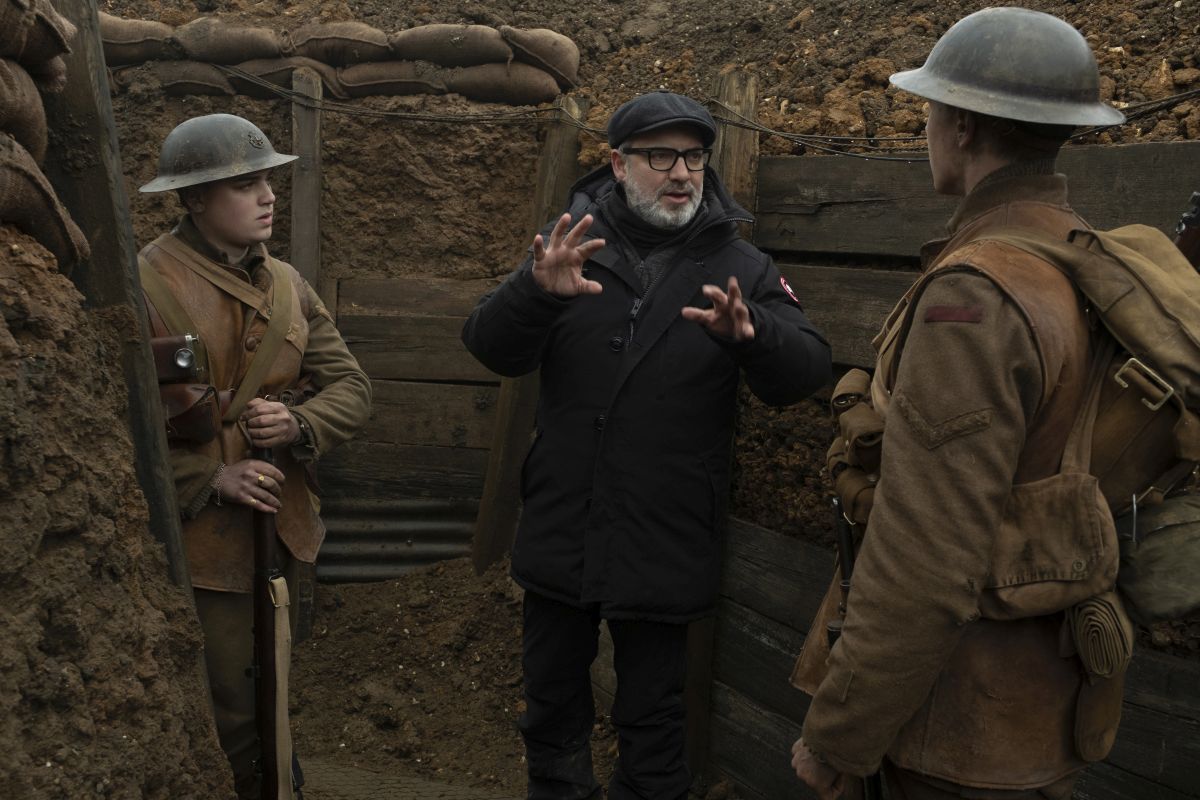
-
1917

-
1917
